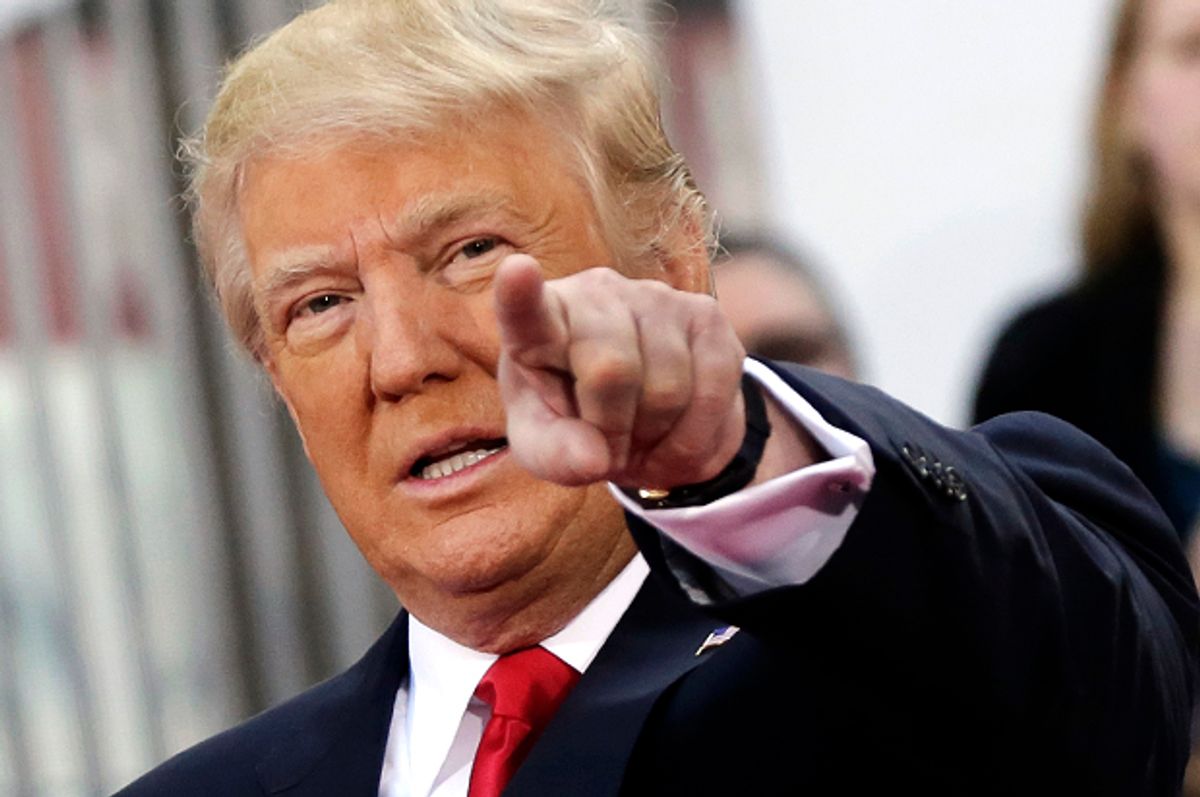In his latest column for New York, former blogger extraordinaire Andrew Sullivan goes long -- really, really long -- on why the rise of Donald Trump doesn't deserve to be dismissed as mere fascism, as it has its philosophical origins in one of the oldest forms of tyranny.
"[I]t is when a democracy has ripened as fully as this, Plato argues, that a would-be tyrant will often seize his moment," Sullivan wrote. "To call this fascism doesn’t do justice to fascism. Fascism had, in some measure, an ideology and occasional coherence that Trump utterly lacks."
But Trump's "movement is clearly fascistic in its demonization of foreigners, its hyping of a threat by a domestic minority (Muslims and Mexicans are the new Jews), its focus on a single supreme leader of what can only be called a cult, and its deep belief in violence and coercion in a democracy that has heretofore relied on debate and persuasion."
However, it is born of a democratic impulse that is necessarily contrary to the fascistic impulse, at least according to Sullivan's reading of Plato.
"[L]ike all tyrants," Sullivan argued, Trump "is utterly lacking in self-control. Sleeping a handful of hours a night, impulsively tweeting in the early hours, improvising madly on subjects he knows nothing about, Trump rants and raves as he surfs an entirely reactive media landscape. Once again, Plato had his temperament down: A tyrant is a man 'not having control of himself [who] attempts to rule others[.]'"

Shares